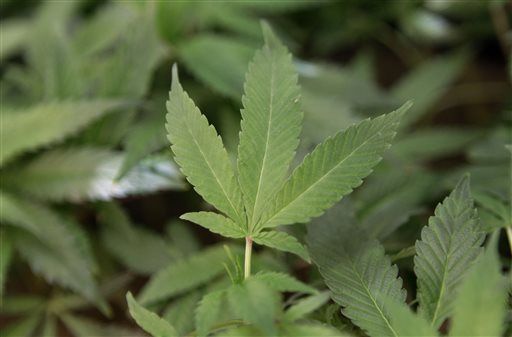PHOENIX — People with marijuana in their system can escape driving-under-the-influence convictions if they can show they weren’t “high” enough to be impaired, the Arizona Supreme Court ruled Friday.
The justices rejected a claim by two individuals that the fact they had state-issued cards allowing them to ingest the drug automatically means they can never be charged with driving while impaired. Chief Justice Scott Bales, writing for the unanimous court, said nothing in the 2010 voter-approved law allowing the medical use of marijuana provides such immunity.
But Bales said the presence of marijuana is not proof that someone is actually impaired.
Friday’s ruling creates what is called an “affirmative defense” for those charged with driving with drugs in their system.
In essence, they can still be charged with violating the law. And all prosecutors have to prove is that they did, in fact, test positive for marijuana or one of its metabolites, the chemicals caused when the drug breaks down in the body.
But Bales said defendants can escape conviction if they can prove to a court “that the concentration of marijuana or its impairing metabolite in their bodies is insufficient to cause impairment.”
The decision is a mixed bag for prosecutors.
On one hand, they praised the fact the high court did not say medical marijuana users can drive without fear of being stopped or prosecuted.
“This is a very welcome ruling in today’s culture, where the small minority of individuals who use marijuana seek to reorganize Arizona’s laws to protect their use to the detriment of the public’s safety,” said Yavapai County Attorney Sheila Polk.
But prosecutors were upset the justices effectively voided the state law that makes it a crime for individuals to operate a vehicle “while there is any drug defined in (state law) or its metabolite in the person’s body.”
Maricopa County Attorney Bill Montgomery said that law is plain on its surface: If a motorist tests positive for marijuana, he or she is guilty of driving while impaired. He said that differs from other laws wherein prosecutors have to specifically prove someone was impaired.
Bales conceded that point. And he said there apparently was a purpose behind that statute.
“The Legislature, in seeking to combat the serious problem of impaired driving, recognized that for certain drugs it may be difficult to identify concentrations that definitely establish whether a defendant is impaired,” Bales wrote.
But he said there’s another law at play: the one voters approved in 2010 allowing those with certain medical conditions to legally possess and use marijuana. And that law spells out that a patient “shall not be considered to be under the influence of marijuana solely because of the presence of metabolites or components of marijuana that appear in insufficient concentration to cause impairment.”
Bales said those two statutes, read together, give medical marijuana patients the chance to argue that they cannot be convicted because they were not impaired.
Montgomery said there’s one big practical problem with that: There are no scientific studies that show at what level of marijuana in the blood someone becomes impaired.
That’s far different than laws dealing with drunken driving. Lawmakers have enacted laws saying that someone with a blood-alcohol concentration of 0.08 or more is presumed to be driving while intoxicated.
What that potentially leaves, said Montgomery, is having defendants testify that they were not impaired.
For example, he said an individual could say he uses marijuana for back pains but still had a spasm, which is what resulted in the car jerking, and which is further why the officer pulled the person over in the first place.
“I’m going to declare from my personal testimony, ‘I wasn’t impaired, I drive like this all the time,’” Montgomery said of how the testimony might go.
He pointed out that Friday’s ruling says that question of impairment is determined by the “preponderance of the evidence,” meaning whether something is more likely impaired than not. Montgomery said that could mean a defendant would be acquitted unless a prosecutor could find some way — he’s not sure how — to rebut the driver’s claim that he or she was not impaired.
Friday’s ruling extends even further the legal protections the state Supreme Court provided last year for marijuana users charged with DUI.
Polk said Friday’s ruling will have even more far-reaching implications if voters approve the initiative now being proposed for the 2016 ballot to allow the recreational use of marijuana.





